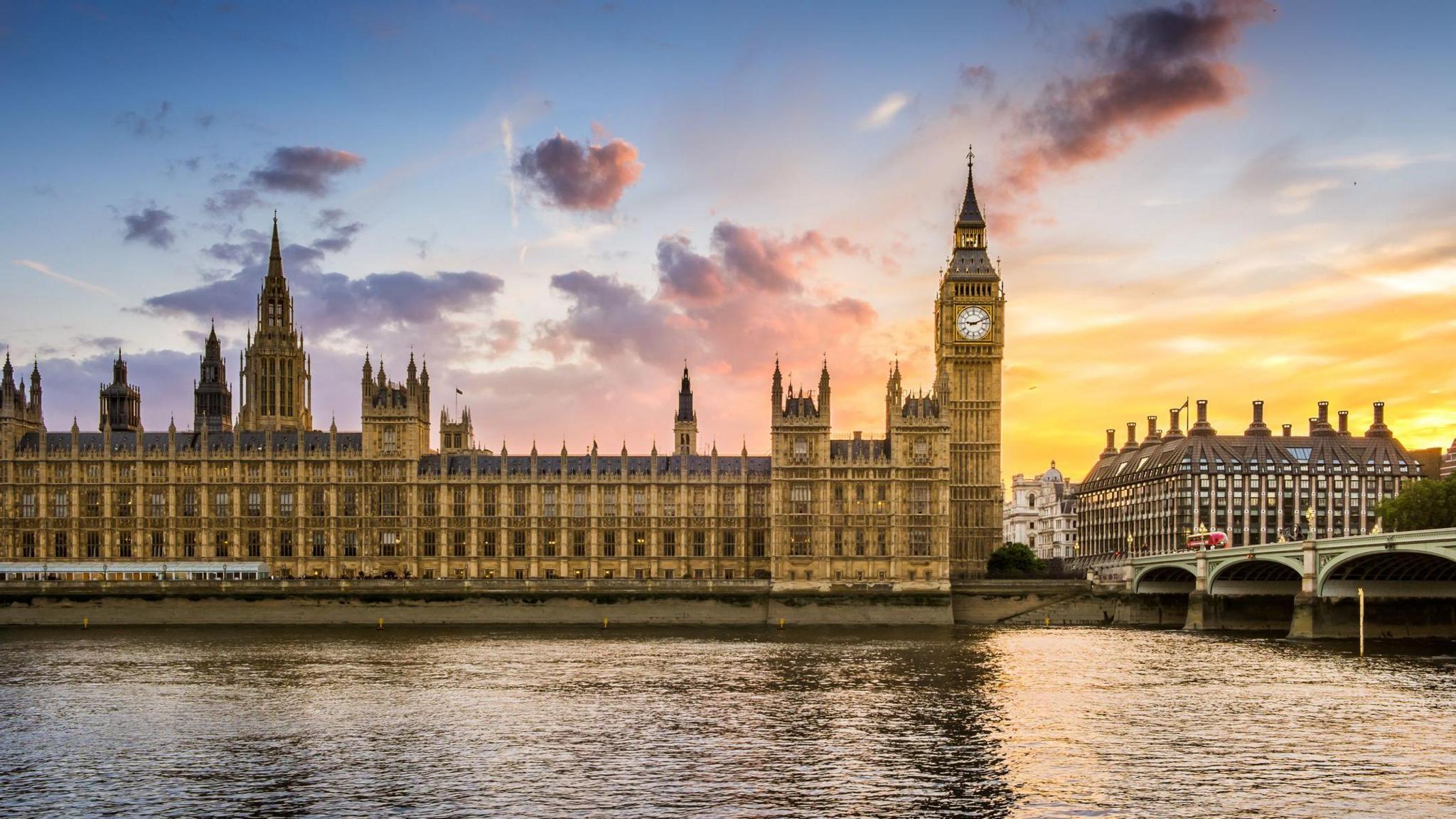Politicians clash in general election TV debate
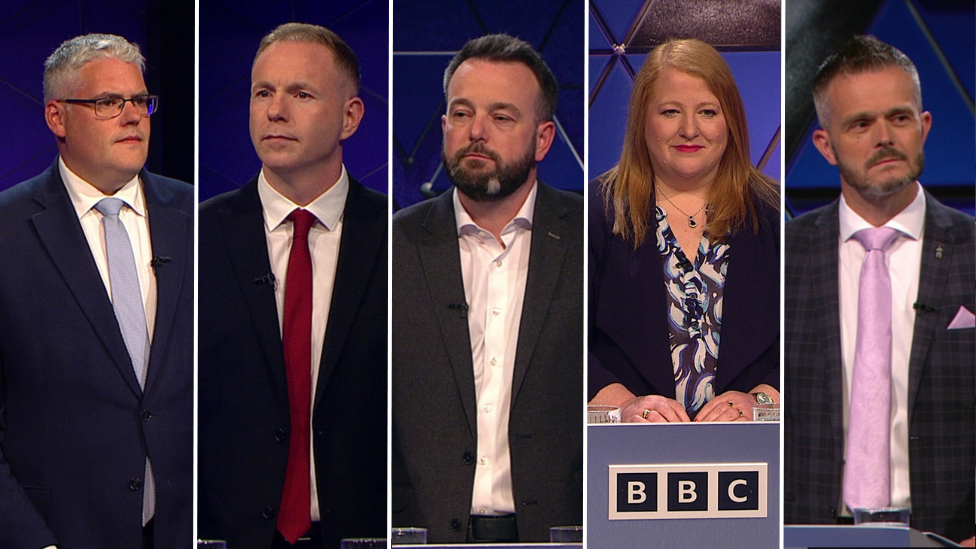
The politicians clashed on the health service, Irish unity and the Israel-Gaza war
- Published
Politicians from Northern Ireland have clashed over health funding and the reform of power-sharing in the final TV debate of the general election campaign.
The election is taking place on 4 July with 18 seats available in Northern Ireland.
Representatives from each of the five main parties took part in the debate on Thursday evening.
Democratic Unionist Party (DUP) leader Gavin Robinson, Sinn Féin's Chris Hazzard, Social Democratic and Labour Party (SDLP) leader Colum Eastwood, Alliance leader Naomi Long and Ulster Unionist Party (UUP) deputy leader Robbie Butler took questions from a live audience.
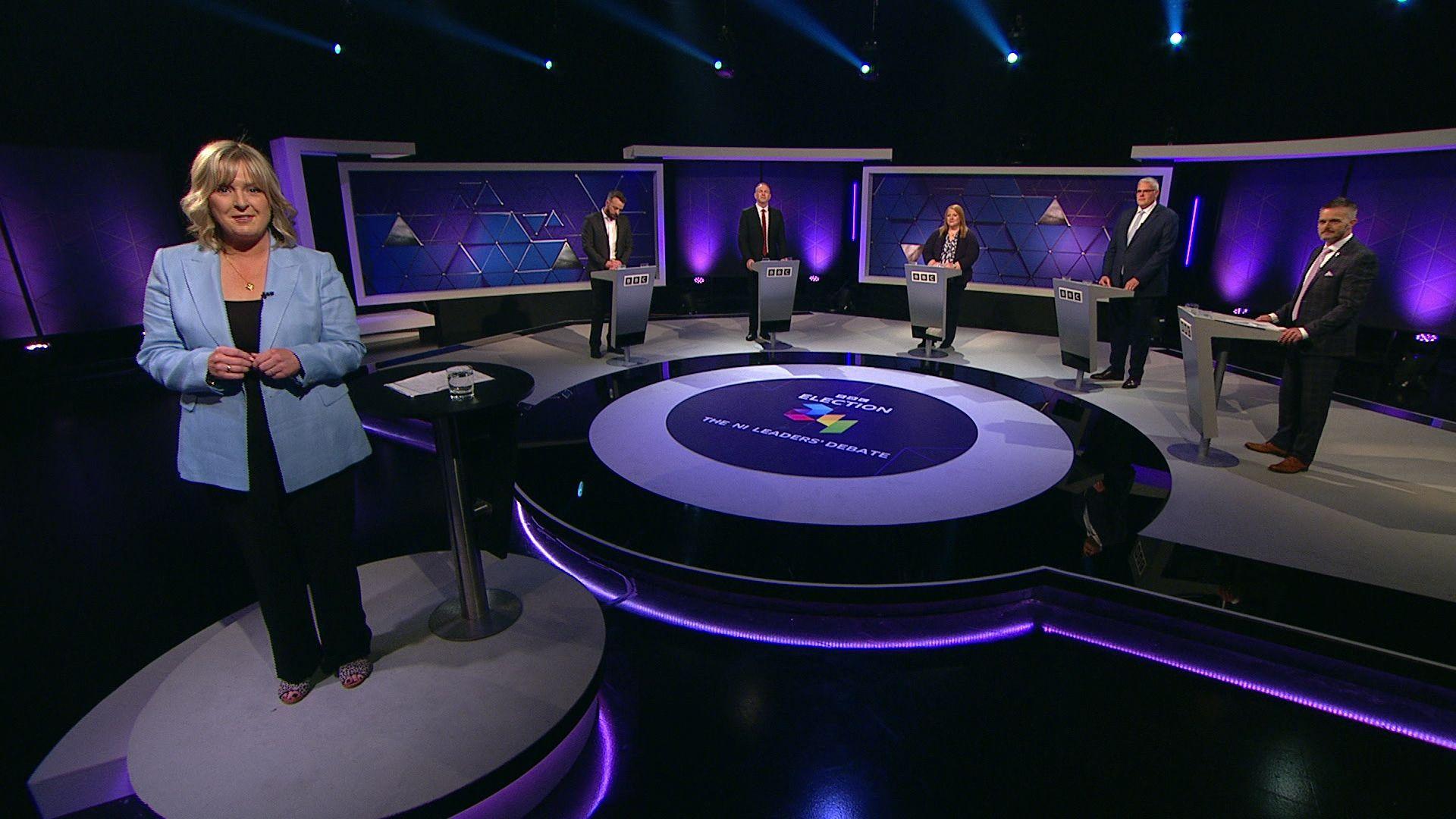
The debate was hosted by Tara Mills
On the future of the health service, executive parties were pressed about why they had not provided enough additional funding to address issues like long waiting lists and transformation of services.
In May, then-Health Minister Robin Swann of the Ulster Unionist Party voted against the executive's budget for 2024-2025, arguing it would lead to real term cuts for his department.
Chris Hazzard said there was an onus on the next UK government to work with MPs from Northern Ireland to push for more funding to invest in the health service and transformation.
The DUP leader Gavin Robinson said if the executive had allocated more cash towards health, the Departments of Justice and Education would have been left without funding for police officers and special needs education.
Naomi Long argued that any plan for transformation needed to come from the Ulster Unionist Health Minister Mike Nesbitt.
His colleague Robbie Butler told the audience that previous suspensions of power-sharing at Stormont had caused stagnation in the health service, while SDLP leader Colum Eastwood said the parties needed to stop "squabbling" and make a united case to the UK Government.
What else was debated?
Asked how politicians could regain trust of the public after years of power-sharing being suspended, the parties were also at odds.
Mrs Long said Stormont was "no more stable" than it was on the day devolution returned in February, following a two-year boycott by the DUP.
"Politicians need to live up to the promises they make and be willing to deliver the government they promised," she said.
Mr Hazzard said his party could not see any circumstances in which it would bring down the institutions again, while Mr Butler said people were "right" to be mistrusting of politicians generally across the UK and Ireland and criticised the DUP for "taking its players off the pitch".
Mr Robinson, who became DUP leader in March, declined to say his party would never bring down devolution again but defended the DUP's walk-out, accusing others of "complaining" about post-Brexit trade rules but "doing nothing".
The SDLP leader said his party had never brought down power-sharing and "found it strange" that other parties could not make the same commitment.
Irish unity and war in the Middle East
The five politicians were also asked about the constitutional future of Northern Ireland.
Nationalist parties Sinn Féin and the SDLP are in favour of Irish unity, while unionist parties the DUP and UUP are among those who advocate Northern Ireland remaining in the union.
Mr Eastwood described a united Ireland as a "very attractive proposition" and that planning for a border poll should happen now.
Alliance leader Naomi Long defended her party's stance to remain neutral on the issue, saying no one was "waking up in a sweat at night over the border" and that the focus needs to be on fixing problems in Northern Ireland before talk turns to Irish unity.
Mr Robinson said he accepts that Northern Ireland is "chronically underfunded" by Westminster, but says it does "benefit from being part of the fifth largest economy in the world", citing the cost of healthcare in the Republic of Ireland.
While Mr Butler said politicians should make Northern Ireland work so it has a more prosperous future for all.
On the topic of conflict in the Middle East, Sinn Fein's Chris Hazzard was asked if his party would visit the White House next year if President Biden is re-elected and the Israel-Gaza conflict is ongoing.
The party faced criticism from some of its supporters this year when it chose to attend events in Washington DC, but Mr Hazzard said Sinn Fein "will continue to go wherever we need to go to be the voice of the Palestinian people where their voice needs to be heard".

- Published17 June 2024
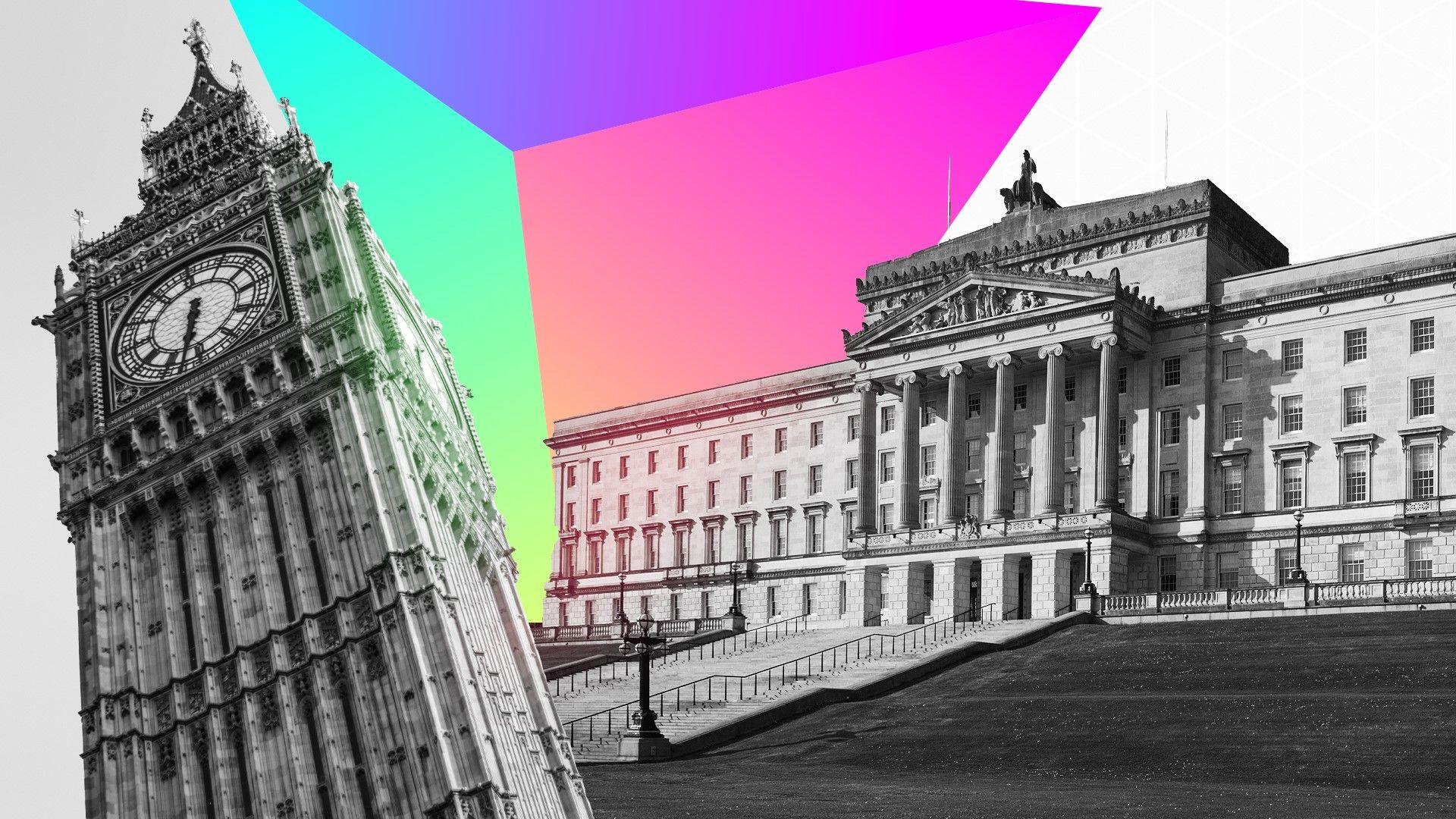
- Published3 July 2024
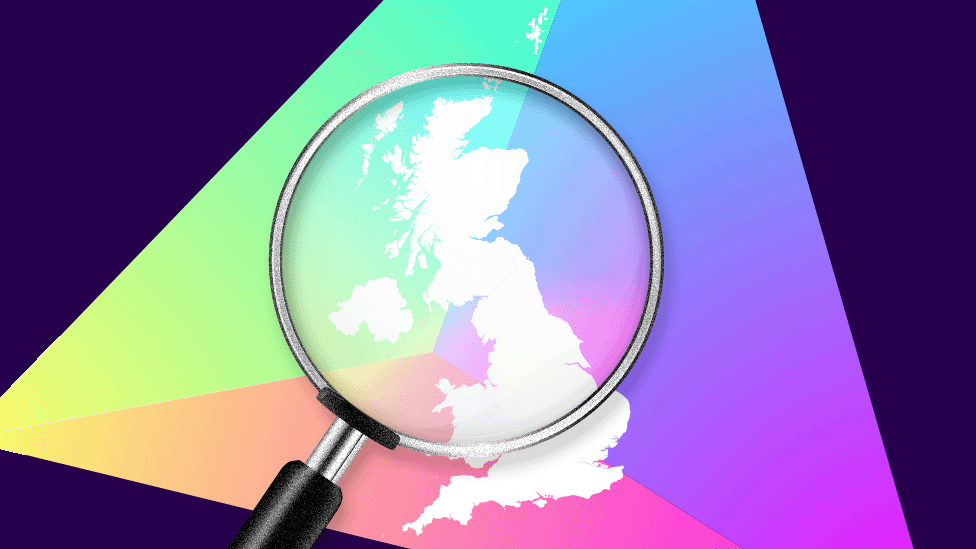
- Published4 July 2024
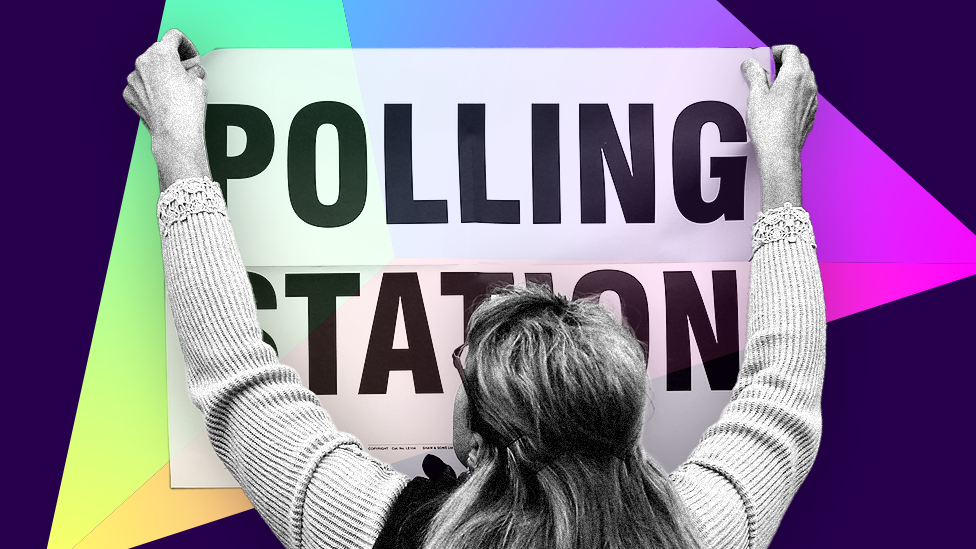
- Published7 June 2024
